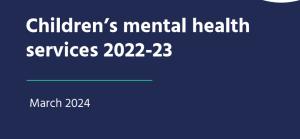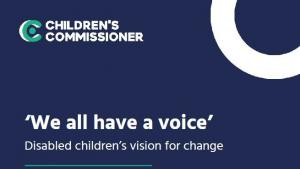Foreword by Dame Rachel de Souza
England’s children take their mental health and wellbeing really seriously. They speak about it fluently and more confidently than many adults. This shone through in the findings of The Big Ask, which I launched last year and is the largest-ever survey of over half a million children. In their responses, children wrote about their hopes and dreams for the future, and what they need to help them achieve those goals. The good news is most children were happy or okay. Though, concerningly if not surprisingly, 1 in 5 were worried about their mental health. Mental health was children’s biggest worry overall. This was more acute amongst older teenage girls, with around 2 in 5 of 16–17-year-old girls reporting that they felt unhappy with their mental health. Teenage girls were also clear that even if they were not suffering from a mental health condition, having and retaining good mental health was a key focus for them.
That is why I have made children’s health and wellbeing a key pillar of my work as Children’s Commissioner. And since The Big Ask, my office and I have spoken to hundreds of children about mental health. Those with acute conditions, those in mental health beds in hospital, those receiving support from Mental Health Support Teams (MHST), and some receiving no support at all. Earlier this year, I published my annual briefing on children’s mental health in England. This found that in recent years, spending on children’s mental health services has increased and services are treating more children. But more children are struggling with their mental health since the pandemic and at an earlier age given the effects of lockdown. There is still a mountain to climb before all children are getting the support they need and deserve.
I have been working to ensure the Government’s Special Education Needs and Disabilities (SEND) Green Paper builds leads to fundamental change for the support available to children with SEND in school, including those with mental health needs.
In this report, I am delighted to set out my vision for improving children’s mental health, based on the views of children and young people. I hope the Government will use this to inform the development of their Mental Health and Wellbeing Action Plan. This Plan must put children, their views, and experiences, at its core.
We need to act before issues escalate. The best way to do this is to start with support for families. The very earliest days, months, and years of life are critical for building strong foundations for good mental health. That is why families need support from the very beginning, to help children form healthy attachments and to support mums, dads and carers to give their children the best start in life. Schools must also provide a safe, fun, and supportive environment for children, to help them to learn and to thrive. This includes learning about how to promote good mental health.
If children do start to experience mental health concerns, easy and early access to mental health support is vital. It needs to be provided exactly where they are, whether in school, at home via online services, or in the community, to help prevent problems escalating. This can be achieved by building support around our schools – the place children and young people attend every day, and where they have contact with their teachers, friends, and support networks. As this report shows, this is a generation of children and young people who both understand the concept of mental health and know best about what will benefit them. In the wake of the pandemic, it is more crucial than ever that we take the time to listen to them, and to give them the support they need.





